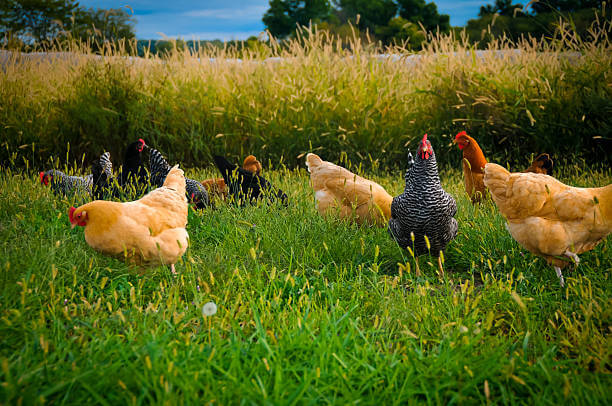
For backyard chicken owners, one of the most common questions is whether to keep your flock confined to a coop and run or allow them to roam freely during the day. While confining chickens provides some conveniences for the owner, allowing your hens to range freely offers a number of benefits both for the chickens and the owner. Here are some of the top advantages of opting for a free-range chicken flock.
Healthier, Happier Hens
When chickens are confined, they do not get sufficient opportunities for exercise and natural foraging behaviors. Being cooped up in a small area all day can lead to stress and boredom for the birds. Free-ranging allows chickens to engage in natural behaviors like dust bathing, scratching, pecking at bugs and worms, and stretching their wings. This mental and physical stimulation keeps the birds healthy, busy, and less stressed. Chickens that can range also tend to be more interactive with their owners when handled compared to confined birds.

Access to Natural Diet
While chicken feed provides balanced nutrition, free-ranging allows hens to supplement their diet with natural foods like seeds, bugs, and greens. This added variety in their diet provides extra vitamins, minerals, and natural roughage. Foraging behavior is instinctual for chickens, so allowing it keeps them happy and fulfilled. Any foods they consume from roaming also helps cut down on feed costs.
Enhanced Egg Quality
The eggs produced by free-range chickens are known for their superior quality. The varied diet and increased outdoor activity result in eggs with richer, more vibrant yolks and thicker eggshells. These eggs are not only visually appealing but also offer a more pleasing texture and flavor when cooked. Their nutrient-rich content, as mentioned earlier, further contributes to their higher quality.

Parasite and Disease Control
Free-ranging gives chickens exposure to a variety of bacteria, fungi, and other microorganisms found in soil, plants, and wildlife. This contact helps develop and maintain a robust immune system. Confined birds are more susceptible to internal parasites from overcrowding and disease from contact only with other chickens. Ranging chickens have less opportunity to infect each other and more exposure to a diversity of microbes that support healthy digestion and immune function.

Environmental Enrichment
When chickens free-range, they naturally fertilize and till the soil with their scratching and grazing habits. Their droppings distribute seeds from plants they consume. This benefits soil nutrient levels and introducing plant diversity. Chickens also help control insect pests by consuming bugs, grubs, and larvae in gardens and pastures. This natural fertilizing and pest management saves owners money on chemical amendments and bug sprays.
Happier Owners
Watching chickens engaged in natural foraging and social behaviors is highly enjoyable and entertaining for owners. Free-ranging improves the human-chicken bond through more interactions outside versus trying to interact only through a coop wire barrier. There's also less work keeping happiness levels high for confined chickens versus those who can range and stimulate themselves. Fewer health issues also means less vet bills for owners of free-ranging flocks. Overall life is less stressful for both chickens and owners with a free-range setup.

So in summary, while there are certainly still pros to confinement like ease and protection from predators, the mental, physical, nutritional, and environmental benefits of allowing your chickens to enjoy freedoms of range greatly outweigh keeping them cooped up all day. Most veterinarians now recommend free-ranging as the healthier model for chickens to thrive in as pets. It's a win-win for flocks and their human stewards.



Leave a comment
All comments are moderated before being published.
This site is protected by hCaptcha and the hCaptcha Privacy Policy and Terms of Service apply.